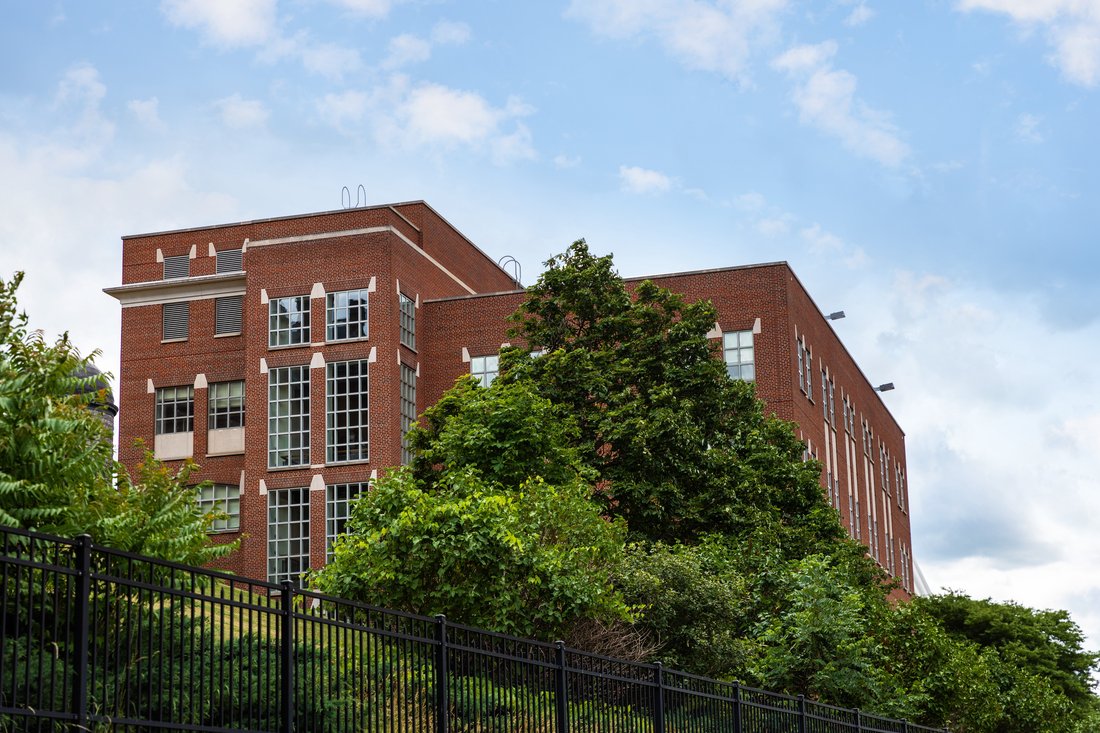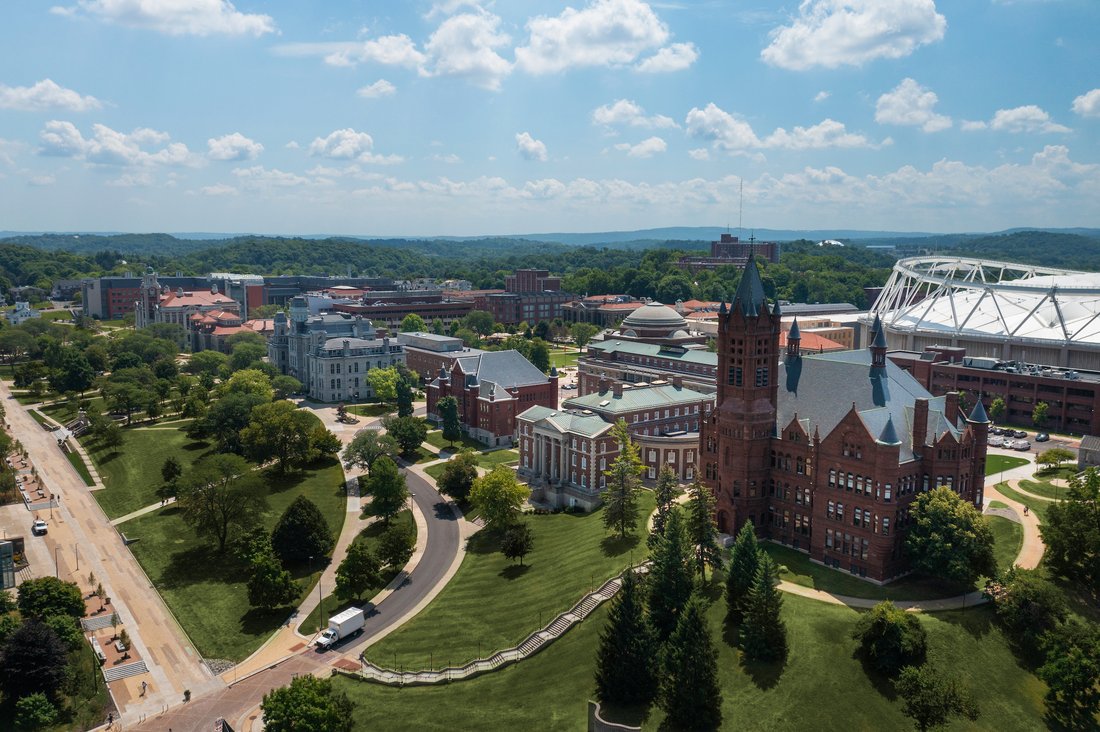
David B. Falk College of Sport and Human Dynamics
Curriculum
The public health curriculum builds on a strong liberal arts foundation in the biological sciences, communications, social sciences, and statistics. Public health coursework begins in year one and focuses on health equity, social justice, social determinants of health, health promotion, and disease prevention. In addition, students complete a concentration in addiction prevention, community health education, healthcare management, or health and society.
The BSPH is accredited by the Council of Education for Public Health (CEPH), the independent agency recognized by the U.S. Department of Education to accredit academic public health programs.
Through the accelerated BSPH/MPH program, you can complete the Bachelor of Science and Master of Public Health (MPH) degrees in 5 years vs. the usual 6 needed if both degrees were completed separately.
Choose from four degree concentrations:
- Community Health Education: Learn to provide health education to diverse populations and communities. Secure your eligibility for initial professional credentialing as a Certified Health Education Specialist (CHES).
- Addiction Prevention: Lean to provide alcohol and substance abuse prevention services such as program evaluation and planning, and public policy and environment change. Secure your eligibility for initial professional credentialing as a substance use counselor or prevention practitioner from the New York State Office of Addiction Services and Supports (OASAS).
- Healthcare Management: Learn to coordinate health programs, or to complete advanced study in healthcare administration.
- Health and Society: Study social justice and neurobiology as it relates to behavioral health and interventions for special populations.
Pursue a second major, integrated into the BSPH requirements. These popular second majors can be completed without adding additional credit to your degree:
- B.A. in Policy Studies
- B.A. in Law, Society and Policy
- B.A. in Psychology
- B.S. in Environment, Sustainability, and Policy
- B.A. in Health Humanities
- B.S. in Neuroscience
Immersive community-based learning requirements are incorporated across all four years of the program culminating with the senior year capstone internship experience. Internships allow you to apply knowledge gained in the classroom to real-world public health challenges in diverse settings. Our dedicated staff of public health internship coordinators will connect you with internships that match your unique interests and leverage our network of community partnerships. Depending on your choice of concentration, you will complete 150 to 330 hours of community-based learning.
- About the Senior Year Capstone Internship Experience
- Explore some of our Partner Organizations
Extracurricular Opportunities
Get Involved in Student-Led Public Health Initiatives
Syracuse University is home to more than 300 extracurricular groups, so you'll never run out of ways to learn and lead. Here are a few ideas to get you started:
- Syracuse University Ambulance is a Syracuse University Health Services-based, student-operated organization. Its emergency medical technician (EMT)-certified student volunteers respond to 1,500 medical emergencies each year.
- Global Medical Brigades travels annually to rural, under-resourced villages in Central America to provide medical care, sustainable resources, and education.
- The Student Association for Public Health Education (SAPHE) provides health education and health resources to Syracuse University and the surrounding community.
Advance Public Health Through Research
Research broadens our understanding so we can implement effective, equitable health policies and interventions. At Syracuse, you can research a wide range of public health problems locally and around the world, including environmental toxicants, infectious disease, addictions, community-level violence, health disparities, and trauma and stress. Publish as an author or co-author on scholarly articles. Present your findings at conferences. Collect and analyze data using leading technologies and equipment in multiple laboratories, centers, and institutions at Syracuse University and the neighboring SUNY Upstate Medical University and SUNY College of Environmental Science and Forestry.
Discover Public Health Across the World
Syracuse University Abroad consistently ranks among the highest-quality international study programs in the country. Syracuse offers short- and long-term options in more than 60 countries, including internships, community engagement projects, and language study at all levels.
Options to explore public health abroad and participate in international internships are available in Denmark (DIS Copenhagen), Sweden (DIS Stockholm), South Africa (SIT South Africa), or Australia (University of Queensland, University of New South Wales, or University of Sydney).
Launch Your Career in Public Health
Entry-level positions in public health are in high demand, such as:
- Medical and Health Services Managers
- Substance Abuse, Behavioral Disorder, and Mental Health Counselors
- Health Education Specialists and Community Health Workers
The public health B.S. is also a strong foundation for advanced degrees:
- Public Health: Seventy-five percent (75%) of alumni who go on to graduate school choose public health graduate degrees such as the Master of Public Health (MPH).
- Clinical Health: The public health B.S. coursework meets admission requirements for post-graduate programs in medicine, dentistry, nursing, and others.
- Law and Policy: Shape the policies and laws that affect our health with a graduate degree in law (JD), public administration (MPA), or political science.
Learn more about this program

